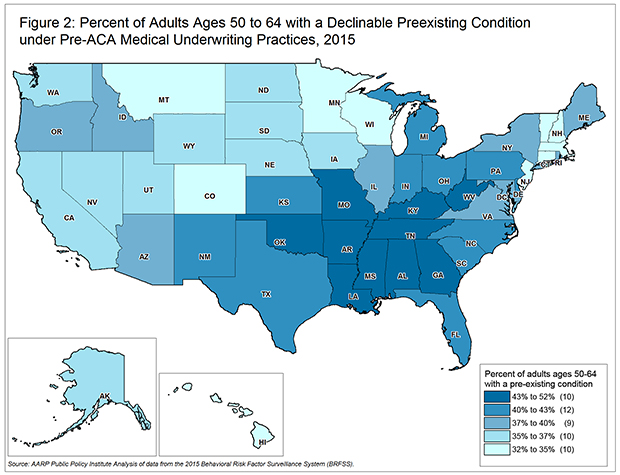AARP Hearing Center
As Congress considers changes to the Affordable Care Act (ACA), a key issue will be ensuring that people with preexisting health conditions have access to affordable health insurance coverage. The ACA bans insurance companies from denying coverage, charging higher premiums, and imposing coverage limits or exclusions to people with preexisting health conditions. The protections are especially important for older adults because they are more likely than younger adults to have health problems.


This Insight on the Issues examines the impact that eliminating or weakening the ACA’s protections for people with preexisting conditions would have on older adults ages 50-64. Building on a recent report by Kaiser Family Foundation, this analysis finds that 40 percent of older adults ages 50-64 – or about 25 million people in this age group – could be denied health coverage because of a preexisting condition if they sought to buy an individual plan. The analysis also found wide state-by-state variation in the prevalence of preexisting conditions among older adults. At the high end, in some states, at least half of those between ages 50 and 64 have a declinable preexisting condition.





































































